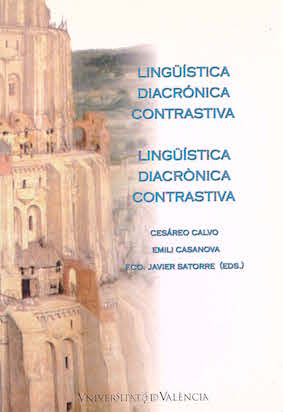El problema de la hipotètica diftongació en català en el context de les altres llengües romàniques
DOI:
https://doi.org/10.7203/qfilologia.9.5122Paraules clau:
diacronia, fonètica històrica, diftongació condicionada, tancament de dos graus Resum
Resum
el present article demostra com la teoria tradicional sobre el pas en català de les E i O breus tòniques>i/i, defesa entre altres per Joan coromines i Joseph Gulsoy no convenç, ja que ni la diftongació condicionada aplicada és la mateixa que en la resta de les llengües romàniques , ni si hagués ocorregut hauria passat en la mateixa època que en occità, com demostren les grafies. Per això l’autor postula, com a més natural, un tancament de dos graus E>e>i/O>o>u, sense que això signifique que pogués confondre’s aquesta evolució amb la de la e i o llargues llatines. acaba passant als defensors de la diftongació la responsabilitat ara de demostrar el contrari.
 Descàrregues
Descàrregues
Descàrregues
Publicades
Com citar
-
Resum596
-
PDF (Español)170
Número
Secció
Llicència
 Este obra está bajo una licencia de Creative Commons Reconocimiento-NoComercial-SinObraDerivada 4.0 Internacional.
Este obra está bajo una licencia de Creative Commons Reconocimiento-NoComercial-SinObraDerivada 4.0 Internacional.
Tots els documents inclosos a OJS són d'accés lliure i propietat dels seus autors i/o institucions editores, i per tant, qualsevol acte de reproducció, comercialització, comunicació pública o transformació total o parcial necessita el consentiment exprés i escrit d'aquests.
Authors who publish with this journal agree to the following terms:
- Authors retain copyright and grant the journal right of first publication with the work simultaneously licensed under a Creative Commons Attribution License that allows others to share the work with an acknowledgement of the work's authorship and initial publication in this journal.
- Authors are able to enter into separate, additional contractual arrangements for the non-exclusive distribution of the journal's published version of the work (e.g., post it to an institutional repository or publish it in a book), with an acknowledgement of its initial publication in this journal.
- Authors are permitted and encouraged to post their work online (e.g., in institutional repositories or on their website) prior to and during the submission process, as it can lead to productive exchanges, as well as earlier and greater citation of published work (See The Effect of Open Access).




